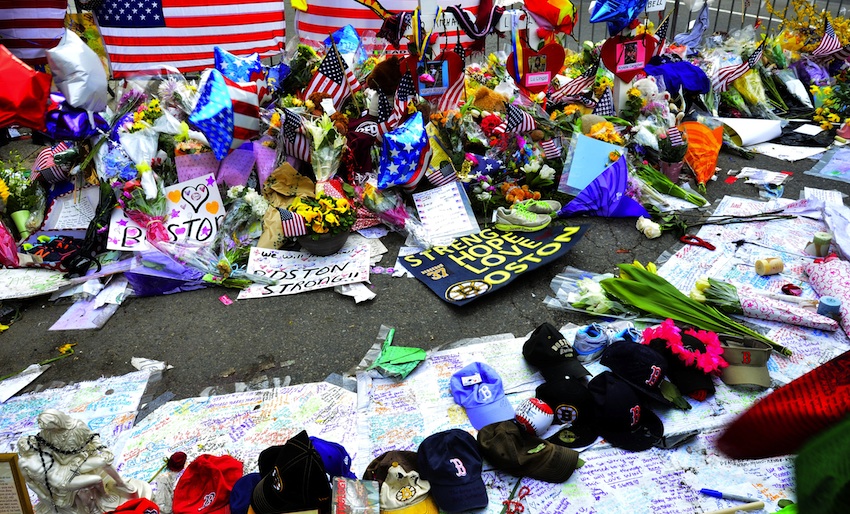Marathon Bombing Victims Join Post-Blast Ear Trauma Study

Marathon memorial photo via Shutterstock.
The trauma experienced at the marathon finish line has led to an ongoing problem that Boston’s medical community rarely sees: post-blast ear trauma.
After the bombing, patients poured into local hospitals complaining of symptoms like ear pain, disequilibrium, decreased hearing on one side, a “hollow” or echoing sound, and an increased sensitivity to sound. The sheer number of these “minor injury” patients, most of whom experienced ear-related injuries due to the noise of the blasts, prompted a study about the effects of blast traumas on the ear by oncologists at Massachusetts Eye and Ear.
According to a report from Harvard, some patients with hearing loss came into the hospital immediately, but others called to make appointments later in the week once they realized that something was not right with their hearing. Alicia Quesnel, a Harvard Medical School instructor in otology and laryngology at Massachusetts Eye and Ear, dealt with many types of these patients following the bombings. In the report, she said:
“Although we wanted to treat these patients early on, we let them know that we didn’t need to treat some injuries, such as a hole in the eardrum, right away. This made it easier for them to deal with their more serious injuries and also the emotional trauma that comes from such an experience.”
Because most of the doctors at Massachusetts Eye and Ear had never seen blast-related ear trauma prior to the bombings, they consulted with military physicians and combat literature before working with many of their patients:
“Although we commonly see these types of injuries—a patient suffering from sensorineural, or nerve-related, hearing loss or a perforated eardrum from a blow to the head, for example—we are not familiar with this mode of injury,” Quesnel said in the report. “The outcomes will also be different in these circumstances. To be able to have this knowledge to help future patients is something that all the patients are very supportive of, and this is why they’ve agreed to participate in the study.”
In their study, Quesnel and her colleagues will follow many of the patients that they treated after the Marathon bombings for three years, hoping to bring what was previously only seen in combat trauma to the sphere of civilian medicine. According to Harvard’s report, they will study primarily whether eardrum perforations heal independently or ultimately require surgery, and whether the characteristics of an eardrum perforation are different when caused by a blast or something else. They will also look at the use of steroids as a treatment after ear-related blast injuries, and will examine the correlation between the distance from the blast and the severity of hearing loss and eardrum perforation.


